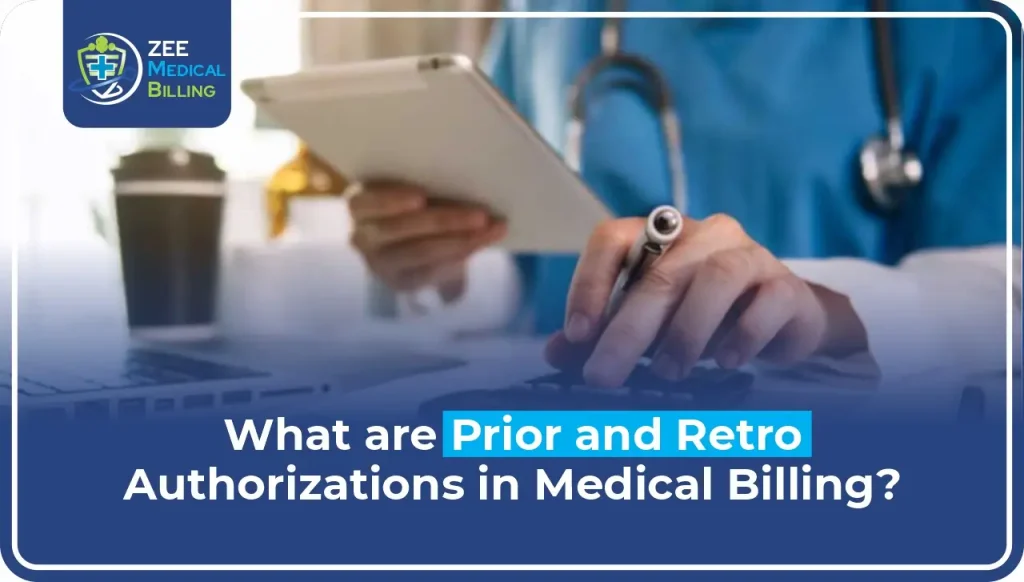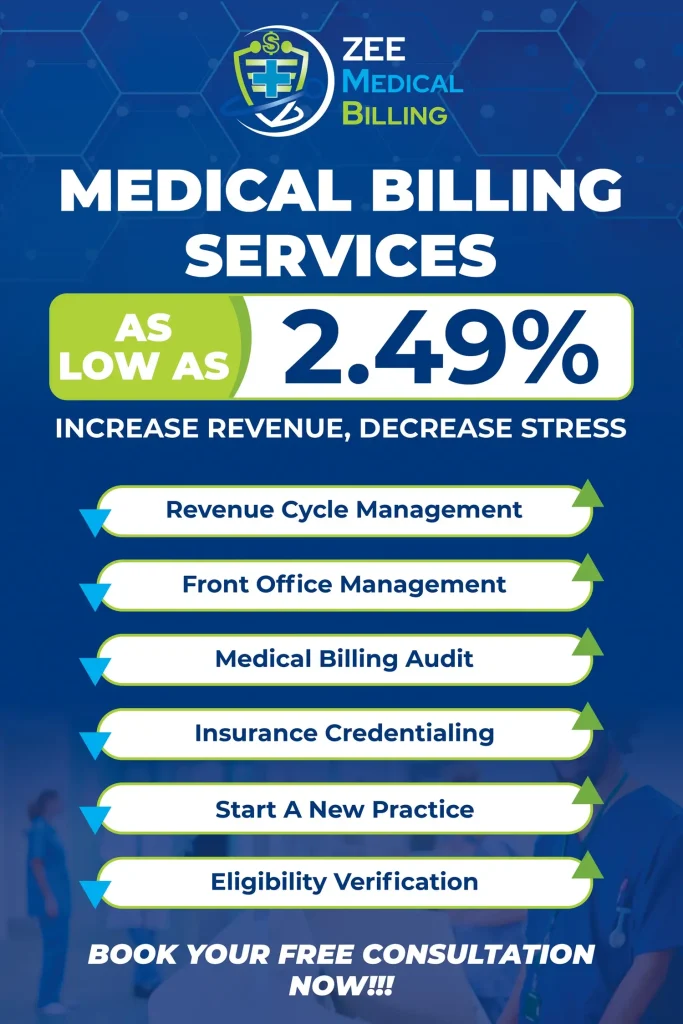In the world of healthcare, billing can get complicated fast. One area that often causes confusion is authorization in medical billing. Understanding the difference between prior authorization and retro authorization is important. This applies to both patients learning about their insurance and healthcare providers managing claims.
Let’s break it down in simple words.
What is Authorization in Medical Billing?
Authorization in medical billing is when a healthcare provider gets approval from the insurance company before giving a service. This ensures that the service is medically necessary and covered under the patient’s insurance plan.
Without proper authorization, insurance can deny the claim, leaving the patient to pay out-of-pocket.
There are two major types:
- Prior Authorization
- Retroactive (Retro) Authorization
Understanding these two can help you avoid billing headaches and delays.
Read More: Essential Tips to Improve Claim Accuracy in Medical Billing
What is Prior Authorization?
Prior authorization requires healthcare providers to obtain approval before they provide the service. This step confirms that the insurance company agrees the service is necessary.
For example, if you need an MRI scan, your doctor may need to get approval from your insurance first.
Why is Prior Authorization Important?
- Ensures services are medically necessary
- Reduces the risk of denied claims
- Protects patients from unexpected bills
Common Services That Require Prior Authorization
- Surgeries
- Advanced imaging (like MRI or CT scans)
- Expensive prescriptions
- Specialized treatments
Many insurance plans have a list of services that need prior authorization. Always check with your insurance or provider.
What is Retro Authorization?
Retro authorization (also called retroactive authorization) occurs after someone provides the service. Basically, you are getting “permission” from the insurance company after the fact.
In simple words, it’s like asking for approval after you’ve already done the job.
Retro Authorization Meaning
Retro authorization is needed when services are urgently provided without prior approval, like in emergency cases.
When is Retro Authorization Needed?
- Emergency treatments where prior approval wasn’t possible
- Administrative errors where authorization was overlooked
- When patients switch insurance but need urgent care
Is Retro Authorization Always Approved?
No. Insurance companies can deny retro authorization requests. They can do this if the service is not medically necessary or if the claim does not meet their guidelines.
That’s why documenting everything properly is very important.
Types of Authorization in Medical Billing
Here’s a quick overview of the common types:
- Prior Authorization: Before service
- Concurrent Authorization: During treatment, for ongoing care
- Retroactive Authorization: After service, often in emergencies
- Precertification: Similar to prior authorization but focused on hospital admissions
Many people ask: what is the difference between precertification and preauthorization?
The terms are often used interchangeably, but technically:
- Precertification is usually about hospital admissions.
- Preauthorization is broader and covers a variety of services.
Precertification vs Preauthorization
| Feature | Precertification | Preauthorization |
| Main focus | Hospital stays | Various healthcare services |
| Timing | Before admission | Before service provided |
| Purpose | Verify necessity | Verify coverage and necessity |
Both processes help reduce unnecessary services and keep costs down for insurers and patients.
Retro Authorization Definition and Retro Medical Meaning
The retro authorization definition simply refers to the process of obtaining approval after treatment.
In medical terms, retro generally means “backward” or “after the fact.”
In medical terms, “retro” often means something that happens after the first event. This includes things like retroactive approvals or reviews.
Read More: Affordable Medical Billing Services for Small Practices
How to Handle Prior and Retro Authorizations Effectively
- Stay Organized: Keep track of services that need prior approvals.
- Educate Patients: Let them know when authorization is needed.
- Document Everything: Especially for retro authorizations.
- Act Quickly: Submit retro authorization requests as soon as possible.
Many healthcare providers now choose to outsource prior authorization tasks. Prior auth outsourcing can help streamline the process, reduce errors, and focus on patient care.
Outsource Prior Authorization: Is It Worth It?
Prior authorization outsourcing companies specialize in:
- Checking insurance requirements
- Submitting prior auth requests
- Following up with insurance providers
Benefits include:
- Faster approval times
- Lower denial rates
- Reduced administrative burden
For busy medical offices, outsourcing can be a smart move.
FAQs
1. What is billing authorization in medical terms?
Billing authorization means obtaining insurance approval before billing for healthcare services to ensure coverage.
2. What is a retro authorization in healthcare?
A provider obtains insurance approval for a retro authorization after administering treatment, usually for emergencies.
3. What happens if prior authorization is not obtained?
The insurance company may deny the claim, and the patient might have to pay out-of-pocket.
4. What services typically require prior authorization?
High-cost services like surgeries, imaging tests, specialty medications, and hospital stays often need prior authorization.
5. How long does it take to get prior authorization?
It varies by insurer but usually takes between a few hours to several days.
Conclusion
Prior and retro authorizations play a vital role in medical billing and insurance processing. Knowing the differences and when to use them can help avoid delays and denied claims. Managing the process carefully can also prevent unexpected costs.
Healthcare providers must stay organized and proactive. Patients should always ask about authorization requirements before getting services. If your practice struggles with managing approvals, considering prior auth outsourcing can help.
Stay informed and stay prepared — and billing becomes a lot smoother.
Need Expert Medical Billing Services?
Zee Medical Billing provides professional billing solutions tailored to healthcare providers across the United States. In addition to offering top-tier support from our main office, we proudly serve clients in Illinois, Indiana, California, Kentucky, New York, Washington, Georgia, Alabama, South Carolina, Texas, Pennsylvania, Ohio, New Hampshire, Nevada, Massachusetts, Hawaii, Arizona, and Colorado! Whether you’re looking to streamline your revenue cycle or improve claims accuracy, you can reach out to us to learn more about how we can support your practice.









